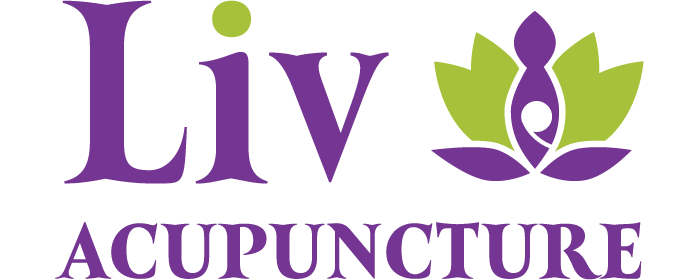Millions of people worldwide suffer from tinnitus, a condition marked by constant ringing or buzzing in the ears. Traditional treatments like medications and hearing aids help some, but many seek better solutions. Acupuncture for tinnitus relief is gaining attention as a promising alternative.
Acupuncture, a key part of traditional Chinese medicine, has been used for centuries. It involves placing thin needles at specific body points to restore balance and energy flow, known as “qi.” Advocates believe acupuncture can effectively treat tinnitus’s root causes, offering lasting relief.

Key Takeaways
- Tinnitus is a common condition characterized by persistent ringing or buzzing in the ears.
- Acupuncture is a promising alternative treatment that may help alleviate the symptoms of tinnitus.
- Acupuncture aims to restore the natural balance and flow of energy in the body, which may address the underlying causes of tinnitus.
- Many individuals with tinnitus are seeking alternative solutions beyond traditional treatments like medications and hearing aids.
- Exploring the potential benefits of acupuncture for tinnitus relief is an area of growing interest and research.
Understanding Tinnitus: Causes and Symptoms
Tinnitus is a common condition that affects millions of people worldwide. It is often described as a ringing, buzzing, or hissing sound in the ears that only the affected individual can hear. Understanding what is tinnitus and its underlying causes is crucial in finding effective treatment options.
What is Tinnitus?
Tinnitus is the perception of sound in the ears or head that is not generated by an external source. It can be a constant or intermittent sound, and its severity can range from mildly annoying to significantly disruptive to daily life. Tinnitus is not a disease itself, but rather a symptom of an underlying condition.
Common Causes of Tinnitus
The causes of tinnitus can be varied, but some of the most common include exposure to loud noises, age-related hearing loss, ear infections, and certain medications. Underlying medical conditions such as cardiovascular problems, TMJ disorders, and neck injuries can also contribute to the development of tinnitus. Understanding the specific causes of an individual’s tinnitus is essential in determining the most effective treatment approach.
In addition to the audible symptoms, tinnitus can also cause other effects, such as difficulty sleeping, concentration problems, and emotional distress. Seeking medical attention and exploring treatment options, including alternative therapies like acupuncture, can be crucial in managing the condition and improving overall quality of life.
The acupuncture tinnitus Connection
Acupuncture is an ancient Chinese medical practice that might help with tinnitus. Tinnitus is a condition where you hear ringing or buzzing sounds in your ears. It’s believed that acupuncture can restore balance and treat the root causes of tinnitus.
Proponents say acupuncture works by stimulating certain body points. These points are linked to energy pathways in the body. By using thin needles, acupuncture may improve blood flow, reduce inflammation, and release pain-relieving chemicals. This could help lessen tinnitus symptoms like ringing or buzzing.
A serene acupuncture clinic scene featuring a patient lying comfortably on a treatment table, surrounded by soft lighting and calming colors, with needles gently placed along the ears and head area, depicting an atmosphere of tranquility and healing, with soothing elements like plants and candles in the background.
Research on acupuncture for tinnitus is ongoing, but some studies show promise. A study in the Journal of the American Medical Association found acupuncture helped reduce tinnitus symptoms. It’s thought to be especially helpful for tinnitus caused by loud noises or other health issues.
If you’re thinking about trying acupuncture for tinnitus, see a licensed acupuncturist. They can create a treatment plan just for you. With the right approach, acupuncture might offer a natural way to quiet the sounds of tinnitus.
Conclusion
Exploring acupuncture as a tinnitus treatment shows great promise. It can help by fixing issues like inner ear damage and nerve problems. This can greatly improve life for those with tinnitus.
The question of can acupuncture help tinnitus is getting more attention. Studies and stories from people show that tinnitus acupuncture treatment can be very helpful. It offers a new way to manage tinnitus symptoms and find the cause.
If you or someone you know has tinnitus, consider trying acupuncture. Look for skilled practitioners who focus on tinnitus. They can help create a treatment plan that fits your needs. Acupuncture might bring the relief and happiness you’ve been searching for.
FAQ
What is acupuncture and how can it help with tinnitus?
Acupuncture is an ancient Chinese practice. It involves putting thin needles into specific body points to heal and relieve ailments like tinnitus. It’s thought to help by balancing the body’s energy, or “qi,” which might ease tinnitus symptoms.
What are the common causes of tinnitus?
Tinnitus can stem from many sources. These include loud noises, age-related hearing loss, ear injuries, some medications, and health issues like high blood pressure or thyroid problems.
How effective is acupuncture in treating tinnitus?
Research on acupuncture for tinnitus is ongoing. Some studies show positive results, while others are more mixed. Many people say acupuncture helps reduce tinnitus symptoms. But, the long-term effects and how it works are still being studied.
How many acupuncture sessions are typically needed to see results for tinnitus?
The number of sessions needed to see tinnitus relief varies. Some people feel better after a few sessions, while others need more, sometimes months. Treatment length and frequency depend on how well you respond and how severe your tinnitus is.
Are there any side effects or risks associated with acupuncture for tinnitus?
Acupuncture is usually safe when done by a skilled practitioner. You might feel some soreness or bruising where the needles were inserted, but it’s usually mild and short-lived. Always talk to a healthcare provider before trying acupuncture, especially if you have health issues or take medications.
